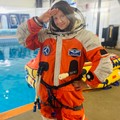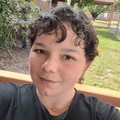Students with Misophonia Scholarship
Misophonia is a neurological condition causing extreme sensitivity to specific sounds, which can lead to anger, panic, or other strong reactions.
This scholarship recognizes the challenges faced by students living with misophonia and aims to alleviate the financial burdens associated with pursuing higher education.
Any undergraduate student with misophonia who has contributed back to the misophonia community may apply for this scholarship opportunity. The deadline falls on World Misophonia Awareness Day, July 9th.
To apply, tell us about your personal experiences with misophonia, how these experiences have inspired you to contribute to the misophonia community, and what actions you'll take to continue advocating for people with misophonia. Additionally, please include a link or upload at least one image to demonstrate your impact to the misophonia community. For example, artwork that illustrates how misophonia affects you, social media posts you've made to raise awareness on misophonia, photographs of a fundraiser you organized for misophonia research.
Describe your personal experiences with misophonia, focusing on the specific challenges you have faced in academic settings. Then, discuss how these experiences have motivated you to contribute to the misophonia community. What actions have you taken to support or advocate for others with misophonia? What are your plans to continue making a positive impact?
Winners and Finalists
Winning Application

Explore All Kinds of Scholarships for All Kinds of Students
FAQ
The application deadline is Jul 9, 2025. Winners will be announced on Aug 9, 2025.
Your privacy is a top priority on the Bold.org platform, and you can find our privacy policy in full here. You may opt out of communications from Bold.org at any time, and unless we’ve first notified you and gotten your consent, you’ll never receive communication from any third parties related to personal information you give us.
Award amounts per winner are designated by the donor. Check the award amount for a detailed breakdown.
The winner will be publicly announced on Aug 9, 2025. Prior to the announcement date, we may contact finalists with additional questions about their application. We will work with donors to review all applications according to the scholarship criteria. Winners will be chosen based on the merit of their application.
Award checks will be sent to the financial aid office of the winner's academic institution in their name to be applied to their tuition, and in the name of their institution (depending on the school's requirements). If the award is for a qualified educational non-tuition expense, we will work with the winner directly to distribute the award and make sure it goes towards qualified expenses.
Before we award the scholarship, the winner will be required to confirm their academic enrollment status. Depending on the circumstances, verification of Student ID and/or their most recent transcript will be required.
If you have any questions about this scholarship or the Bold.org platform, just email contact@bold.org and we’ll get back to you as quickly as we can.
Yes. The terms and conditions for this scholarship can be found here.


